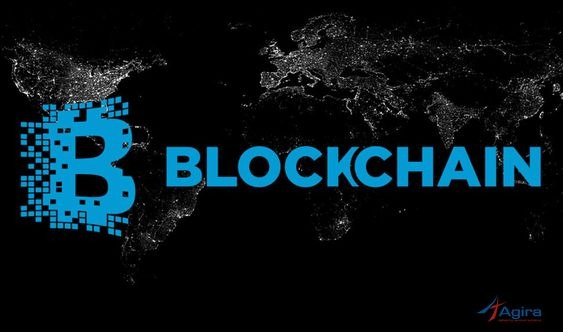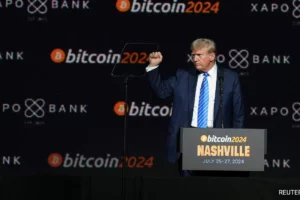In today’s rapidly evolving digital landscape, blockchain technology has captured the imagination of innovators and disruptors alike. While its association with cryptocurrencies like Bitcoin is well-documented, the potential applications of blockchain extend far beyond the realm of digital currencies. This revolutionary technology is poised to revolutionize industries, streamline processes, and foster trust and transparency across diverse sectors. Strap in as we embark on an exploration of the real-world applications of blockchain beyond cryptocurrencies.
What is blockchain technology, and how does it work?

Blockchain is a decentralized, distributed digital ledger that records transactions across multiple computers in a secure and transparent manner. Unlike traditional databases, which are centralized and controlled by a single entity, blockchain operates on a peer-to-peer network, eliminating the need for intermediaries. Each transaction is verified and added to a chain of immutable records, called blocks, which are linked together cryptographically. This creates an auditable trail that is virtually impossible to alter or tamper with, ensuring data integrity and trust among participants.
How can blockchain revolutionize supply chain management?

Supply chain management is a complex process involving multiple stakeholders, from manufacturers to suppliers, logistics providers, and retailers. Blockchain technology offers a secure and transparent solution to streamline supply chain operations, enhance traceability, and reduce costs. By recording each step of the supply chain on an immutable ledger, blockchain can provide real-time visibility into the movement of goods, enabling stakeholders to track products from origin to destination. This level of transparency can help mitigate counterfeiting, ensure regulatory compliance, and facilitate product recalls when necessary.
Can blockchain transform the healthcare industry?

The healthcare industry is ripe for disruption, and blockchain technology presents a compelling solution to address challenges such as data security, interoperability, and transparency. By leveraging blockchain, patient data can be securely shared among healthcare providers, enabling seamless coordination of care while maintaining strict privacy and consent protocols. Furthermore, blockchain can be used to manage and track pharmaceutical supply chains, ensuring the authenticity and provenance of drugs, reducing the risk of counterfeit medications, and enhancing patient safety.
How can blockchain streamline real estate transactions?

The real estate industry is notorious for its complex and often opaque processes, involving numerous intermediaries and extensive paperwork. Blockchain technology can simplify and secure real estate transactions by creating a transparent and auditable record of property ownership, transfers, and associated documents. Smart contracts, which are self-executing contracts built on blockchain, can automate various aspects of real estate transactions, such as title transfers, escrow services, and payment processing, reducing costs and minimizing the risk of fraud or errors.
What role can blockchain play in protecting intellectual property rights?
Intellectual property (IP) rights are crucial for fostering innovation and protecting the interests of creators and inventors. However, enforcing IP rights and tracking ownership can be challenging in the digital age. Blockchain offers a secure and transparent way to register and manage IP rights, such as patents, trademarks, and copyrights. By recording IP assets on the blockchain, creators can establish provenance and ownership, facilitating the licensing and monetization of their intellectual property while deterring infringement.
How can blockchain enhance the gaming industry?
The gaming industry is constantly seeking innovative ways to engage players and create immersive experiences. Blockchain technology can revolutionize the gaming landscape by enabling true digital ownership of in-game assets, such as characters, virtual items, and skins. Players can securely trade, sell, or exchange these assets on decentralized marketplaces, unlocking new revenue streams and fostering a thriving digital economy within gaming ecosystems. Additionally, blockchain can facilitate secure and transparent in-game transactions, preventing fraud and ensuring fair play.
Can blockchain improve voting and election processes?
Ensuring the integrity and transparency of voting and election processes is crucial for maintaining trust in democratic systems. Blockchain technology offers a secure and tamper-proof solution for recording and verifying votes, mitigating the risk of fraud, human error, or manipulation. By leveraging blockchain’s immutable and decentralized nature, voters can have confidence in the accuracy and authenticity of election results, fostering greater trust in the democratic process.
What role can blockchain play in the energy sector?

The energy sector is exploring blockchain technology as a means to streamline operations, enhance transparency, and facilitate the integration of renewable energy sources. Blockchain can enable peer-to-peer energy trading, allowing consumers and producers to buy and sell excess energy directly, without the need for intermediaries. This decentralized approach can incentivize the adoption of renewable energy sources and promote a more efficient and sustainable energy ecosystem. Additionally, blockchain can be used to track and verify the origin and carbon footprint of energy sources, supporting environmental accountability and sustainability initiatives.
How can blockchain enhance the sharing economy?
The sharing economy has disrupted traditional business models by enabling peer-to-peer transactions and the efficient utilization of underutilized assets. Blockchain technology can further empower the sharing economy by providing a secure and transparent platform for managing transactions, maintaining reputation systems, and facilitating trust among participants. Smart contracts can automate various aspects of sharing economy transactions, such as booking, payments, and dispute resolution, reducing friction and increasing efficiency.
Can blockchain transform the charitable and philanthropic sectors?
Transparency and accountability are critical concerns in the charitable and philanthropic sectors, where donors seek assurance that their contributions are being used effectively and as intended. Blockchain technology can address these concerns by creating an immutable and auditable trail of donations, expenditures, and impact metrics. Donors can directly monitor the flow of funds and verify that their contributions are being allocated appropriately, fostering greater trust and engagement in philanthropic initiatives.
In the ever-evolving digital landscape, the real-world applications of blockchain technology beyond cryptocurrencies are vast and far-reaching. From supply chain management and healthcare to real estate, intellectual property, gaming, and voting processes, blockchain offers a secure, transparent, and decentralized solution to longstanding challenges. As industries continue to embrace this transformative technology, we can expect to witness unprecedented levels of trust, efficiency, and innovation across diverse sectors.
















Add Comment